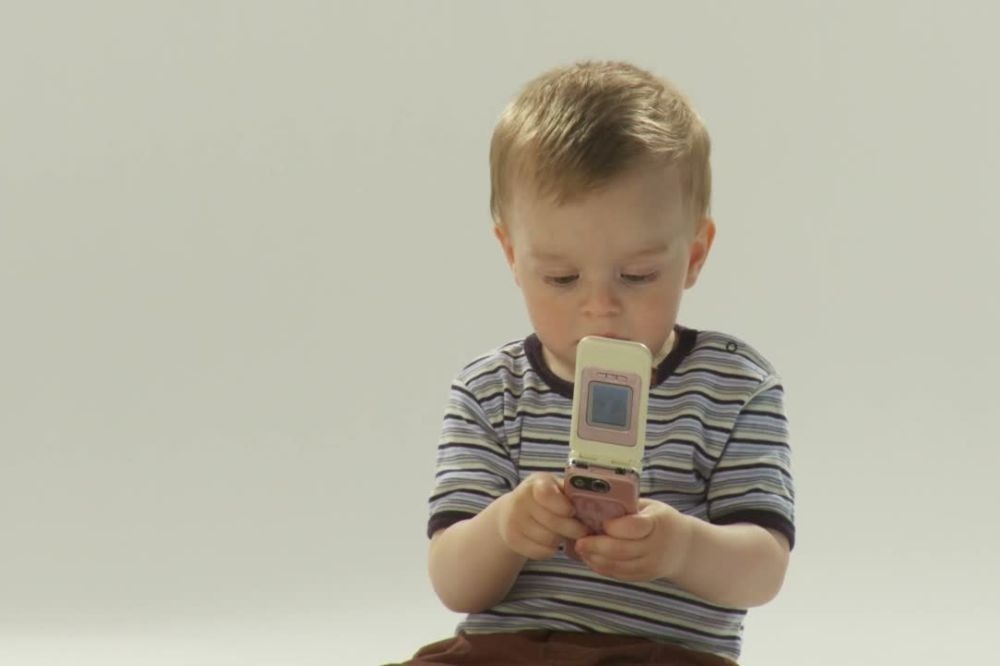Groundbreaking study reveals how children under three use technology

A major study involving researchers at Swansea University has revealed how children under three use technology.
The research, the first of its kind, has uncovered new insights into the extent to which toddlers have access to digital technology at home, how they use it and how it helps their language development.
98% of the families who took part in the study’s online survey had access to a smartphone and the same proportion have Wi-Fi connectivity.
Almost all families in the study (92%) reported they have a television/ smart television and over 80% have laptops and/or tablets.
The research also captured the wide range of tech that young children interact with, including smart devices (such as smartphones, smart speakers, smart doorbells), interactive toys, audio players and even domestic appliances (smart refrigerators and touch sensitivity control panels).
Tech
The project, Toddlers, Tech and Talk, led by Manchester Metropolitan University, is the first in-depth study about tech in the home lives of children from birth to 36 months. It was carried out with Lancaster University, Swansea University, Queen’s University Belfast and the University of Strathclyde.
Rosie Flewitt, Professor of Early Childhood Communication at Manchester Met, said: “Official statistics and discussions in society often assume that very young children don’t use digital media. Our research shows that this is not the case. Our findings offer much needed insights into very young children’s interactions with a range of digital technology at home.”
Other key findings include:
- The vast majority of parents agree that tech offers children opportunities to develop skills with numbers (83%), reading (75%) and creative skills (75%), and most disagree that they harm learning.
- Many parents believe digital devices can be damaging to young children’s physical health (47%) and mental health (49%).
- Most parents (81%) believe digital technology offers opportunities for young children to have fun.
- Most parents feel confident in supporting their child to use devices (66%) and feel able to keep them safe online (72%).
Online survey
The study included an online survey of more than 1,400 parents across the UK, interviews with parents and early years professionals, as well as 40 intensive case studies in family homes.
Professor Flewitt added: “Parents are highly aware of opportunities and tensions around their children’s use of digital technology. They balance beneficial opportunities for their children to communicate with others, play and learn, with concerns over possible damaging effects of overuse.”
The study highlights the different ways that parents use technology with their children, such as looking at photographs and videos, taking photographs, watching programmes, playing music, making digital paintings and listening to stories.
Many very young children also watch videos and take photos by themselves, with some also playing digital games on their own, including number and phonics learning apps. The study offers further insights into how technology can offer rich opportunities for very young children’s language development, such as talking with family in video calls, listening and singing along to songs and nursey rhymes, watching and talking about much-loved TV characters with their parents or siblings.
Greater protection
Parents who took part in the study agreed that the digital experiences of the youngest children in society have been relatively overlooked, that there is a need for greater protection of children’s privacy and security, and that adults need richer information on good practice.
Professor Janet Goodall of Swansea University’s Department of Education and Childhood Studies said: “I’m really pleased that we’ve been able to hear and report the voices of parents and practitioners in this project, as there’s so little research in this area, of very young children’s interactions with digital technology.
“Parents have told us that they are thinking a lot about these issues and making very deliberate choices for their children, but also that they would welcome more information and guidance. Children’s worlds are imbued with digital technologies and this project has helped us to understand how parents and practitioners are negotiating this landscape.”
The two-year study was funded by the Economic and Social Research Council (ESRC).
Support our Nation today
For the price of a cup of coffee a month you can help us create an independent, not-for-profit, national news service for the people of Wales, by the people of Wales.





